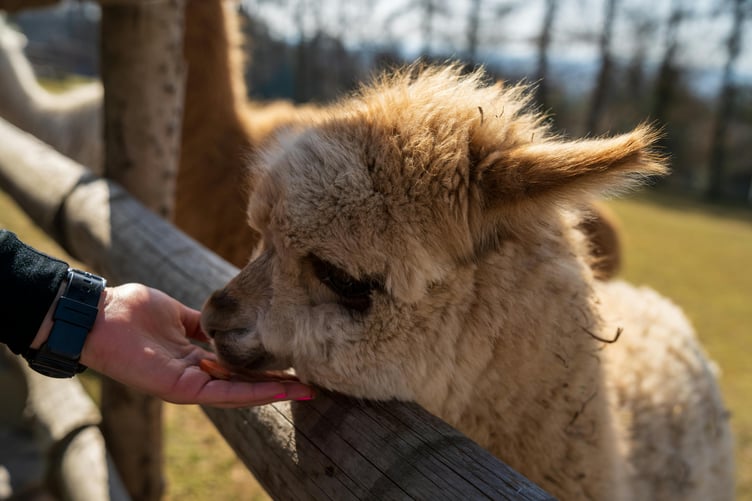Ahead of Open Farm Sunday on June 8, Public Health Wales is reminding visitors to open farms of a few simple steps to help keep people safe when enjoying farm visits.
Even healthy farm animals can carry diseases which can cause illness in humans, importantly diarrhoeal illnesses such as Cryptosporidium and E. coli. These infections can cause symptoms including diarrhoea, vomiting, fever and stomach cramps. Some strains of E. coli can cause serious complications including kidney damage.
Some people are at higher risk of becoming unwell or having complications of infection, including pregnant women, children, elderly people and those with health conditions which affect their immune system making them vulnerable to infection.
A recent outbreak of Cryptosporidium was linked to visiting a farm and resulted in over 80 confirmed cases. Although most people made a full recovery within two weeks, some cases attended or were admitted to hospital.
Christopher Williams, Consultant Epidemiologist for Public Health Wales said: “Infection can be caught from direct contact with animals or touching things that have animal faeces (poo) on them. The risk of infection can be reduced by strictly following safety advice.
“Wash your hands with hot water and soap immediately after contact with animals and before leaving the farm. Reduce the risk by avoiding close contact with animals such as cuddling, kissing or holding animals. Do not eat or drink near animals or walking through the farm. Wash your hands with hot soapy water before eating or drinking.
“The bugs can survive on clothes, shoes, and pram wheels after leaving the farm. So, continue hand hygiene after touching items which could be contaminated until the item has been cleaned. Any soiled clothes, shoes or other items should be cleaned promptly. Prepare for visits by wearing sensible footwear, avoiding open toe shoes. If you get ill after visiting a farm, contact your GP or 111. Ensure good hygiene to avoid passing infection to others.”
To help reduce the risk of infection, people visiting farms are reminded to follow these precautions:
· Avoid close contact with animals – including holding, cuddling or kissing – as this significantly increases the risk of illness.
· Always wash your hands thoroughly with soap and warm water after touching animals, after touching boots or clothing, and before eating or drinking. Alcohol based hand gels do not provide sufficient cleaning. Always use soap and warm water.
· Supervise children closely to ensure they wash their hands properly and avoid close contact with the animals.
· Do not eat or drink when near animals or walking around the farm.
· Remove and clean footwear and wash hands on leaving the farm.
· Pregnant women should take particular care to avoid contact with lambing sheep and other animals giving birth, as well as newborn or baby animals.
Those who have been unwell with diarrhoeal illness following a visit to a farm should:
· Not return to work, school, or nursery until they have been symptom-free for at least 48 hours.
· Be especially careful to avoid spreading the infection to others at home by practising good hygiene, including frequent handwashing with soap and warm water and not sharing towels, bedding or other personal items until you are fully recovered. It is particularly important to wash your hands before preparing food.
· Avoid using a swimming pools for two weeks after their symptoms have ceased.
More information about Cryptosporidium is available here. More information on E. coli is available on the gov.uk website.


Alex-Brenner_5.jpeg?width=209&height=140&crop=209:145,smart&quality=75)


Comments
This article has no comments yet. Be the first to leave a comment.